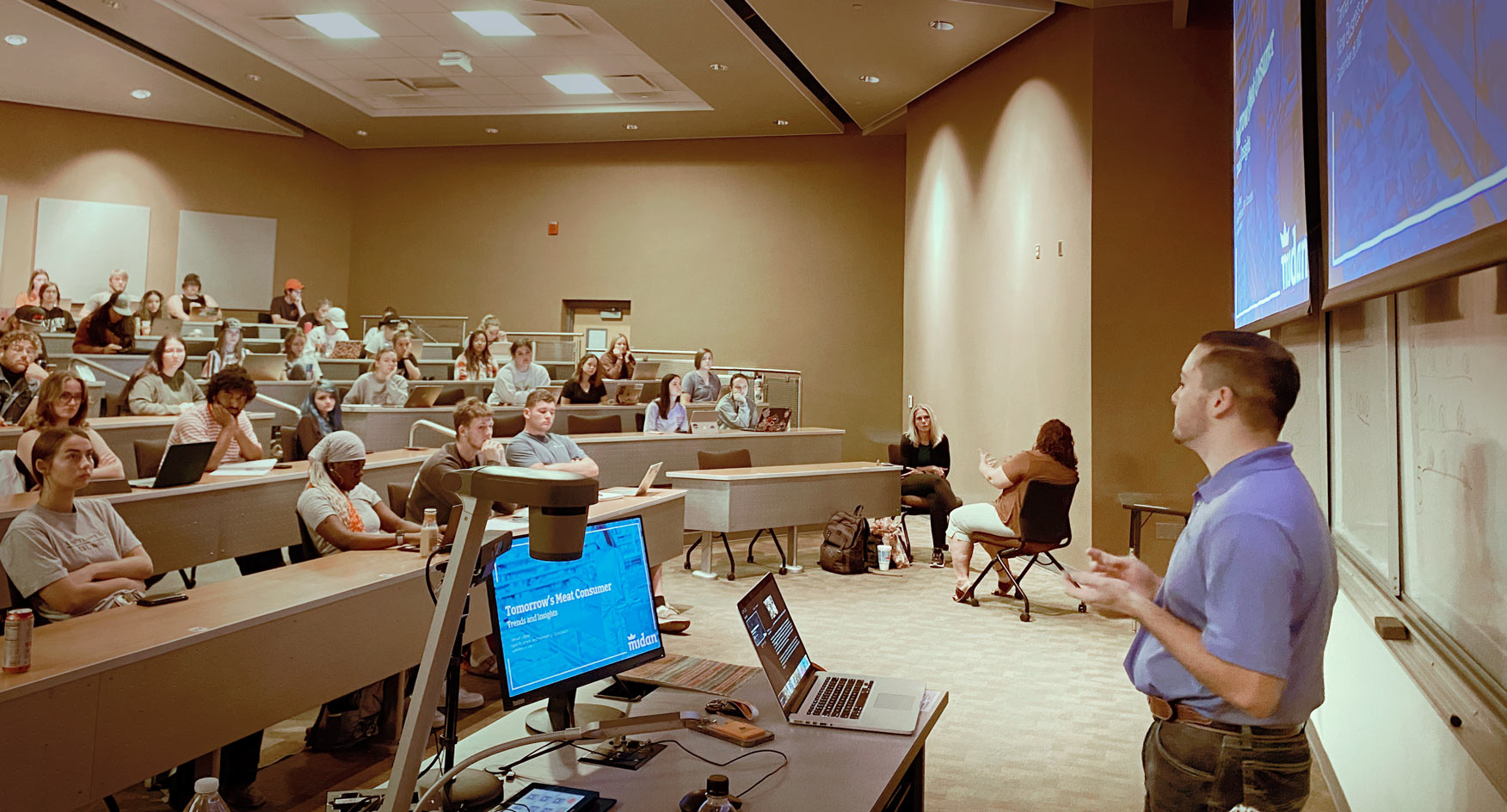As the world gets back to normal – well, a new normal – after the COVID-19 pandemic, many reports fail to mention the long-term ramifications it had on the development of our industry’s future talent. While the meat industry may have lost out on potential sales and revenue, students have taken the biggest hit, losing out on invaluable opportunities. In March of 2020, students were sent home, classes were moved online, internships were cancelled and in-person labs were pivoted to online avenues, with faculty instructed to do their best to provide a similar experience. I don’t know about you, but I would find it challenging to instruct a meat animal carcass evaluation course via Zoom, much less learn that way. I know my friends and colleagues did.
Through my time instructing, I witnessed firsthand the challenges these young adults were facing even with classes back in session. In the online world, by necessity everything was bulleted and spelled out for students, crippling critical thinking and problem-solving skills. Back in person, students seem nervous to ask questions for fear of asking a “stupid” question and not being able to hide behind a Zoom camera. Students are also challenged by what professionalism looks like because they didn’t get to see it modeled by internship employers and faculty.
While students are responsible for regaining the level of pre-pandemic drive and dedication they had to think critically and engage, those of us in the industry also need to rise to the occasion and accept that many Gen Z students might be entering the job market with less experience and knowledge through no fault of their own. This is an opportunity for meat industry thought leaders to invest in the future and here are three ways I think we can step up to the plate:
1. Internships – Make them Meaningful and Experiential
We humans retain the most knowledge when we learn by doing. Internships should be built around this concept and provide young people the opportunity to get their hands dirty. Treat interns like they are a part of the team and allow them to become engrained in the company culture. Give them the opportunity to tackle similar tasks a full-time employee would execute, while being supervised and coached. Develop intern programs that drive individuals to think critically, ask questions and work hard. Of course, it takes time and money to set up these types of truly fulfilling intern programs, but it is so very worth it. Make them meaningful and at the end of your intern’s time, you may find that you’ve just trained and onboarded your next new hire that is a culture fit for your organization.
2. Mentorships – Build Connections
About 74% of young people have a strong desire for there to be purpose in everything they do, and this applies to their careers.1 Gen Z-aged young adults want to grow, learn and build connection to their companies. For a generation that thrives on meaningful relationships, mentorships are an excellent way for industry professionals to tap into this desire to connect. As a Gen Z myself, some of my biggest growth has come through the mentoring of my peers and being mentored by my managers. Getting perspective and advice from an individual with many more years of experience has led me to learn skills and lessons that are not shared in a textbook. But reciprocity is also important here. Be willing to learn from the young people in your life – it might surprise you how much they know about topics you’ve never considered.
3. Partnerships – Ally with Our Land-Grant Universities
Many of the greatest young agriculture and meat science minds come out of land-grant universities. As an industry, we look to these institutions to provide us with a fresh pipeline of well-trained talent. It is time we repay the favor and become more involved in the education of our future industry leaders. With a land-grant in every state, I encourage industry professionals to reach out to their local LGIs and agricultural colleges and ask how they can get more involved to support students. We can do so much more than just showing up to the career fair and selecting a few students for summer internships or entry level positions. Industry professionals can give back and add value by guest lecturing and sharing their real-life industry experience with students, offering to mentor students and partnering with institutions on research initiatives that will help advance our industry.
As the protein sector of the agricultural industry, we are being tasked to feed a growing population. We cannot do that without a strong and willing workforce that is passionate about that mission. We have always asked our educational institutions to send us the best talent, but now it is time we give them our best and work alongside them to support the growth of our young people through internships, mentorships and institutional partnerships.


